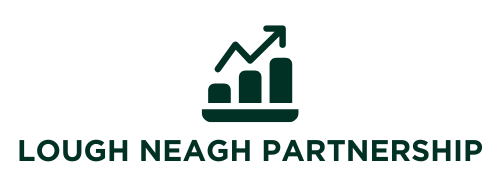Table of Contents
ToggleNavigating the world of personal finance can feel like trying to find a needle in a haystack—while blindfolded. With market updates flying at you faster than a caffeinated squirrel, it’s crucial to know where to turn for reliable tips that won’t leave your wallet gasping for air.
Finding the best sources for personal finance advice isn’t just about avoiding bad investments; it’s about transforming your financial future. Whether it’s through savvy podcasts, informative blogs, or expert newsletters, the right guidance can make all the difference. So grab your favorite snack, sit back, and let’s dive into the best ways to stay informed and keep your finances in check while the market does its unpredictable dance.
Understanding Personal Finance Tips
Navigating personal finance in a changing market demands continual learning and informed decision-making. Staying updated on financial tips enhances investment strategies and promotes long-term financial stability.
Importance of Staying Informed
Awareness of market trends influences financial health directly. Real-time updates allow individuals to adapt investment portfolios quickly. Ignoring shifts in the market can result in missed opportunities or increased risks. Credible sources provide timely advice, making it easier to understand economic indicators impacting personal finances. Attention to reliable information fosters better budgeting and saves money in the long term. Engaging with financial news daily equips individuals to respond to market fluctuations effectively.
Types of Personal Finance Tips
Diverse categories of personal finance tips exist, each catering to unique financial needs. Budgeting tips help manage income and expenses efficiently, ensuring sustainable spending habits. Investment strategies guide individuals in building wealth through stocks, bonds, and real estate. Savings recommendations promote the importance of emergency funds and retirement accounts for future security. Tax advice reduces liabilities and maximizes returns, contributing to overall financial health. Credit tips enhance credit scores and improve borrowing power, further empowering personal finance management.
Sources for Market Updates
Reliable sources for market updates are essential for making informed personal finance decisions. Utilizing trusted platforms ensures access to accurate information and timely financial tips.
Financial News Websites
Financial news websites are key sources for market updates. These platforms provide real-time data, in-depth analyses, and expert opinions. Popular examples include Bloomberg, CNBC, and Reuters. Each site covers different aspects of economic trends, stock market movements, and relevant global events. Visitors can filter content based on specific interests, such as investment strategies or economic forecasts. Real-time updates enhance the ability to respond effectively to market fluctuations, aiding in adjusting personal finance strategies efficiently.
Social Media Platforms
Social media platforms serve as dynamic sources for real-time market updates. Key sites like Twitter and LinkedIn connect users to financial experts, analysts, and thought leaders. Short, timely posts and discussions allow individuals to grasp market trends quickly. Engaging with hashtags related to personal finance encourages discovery of useful tips and resources. Influencer accounts often share insights and recommendations that can guide investment choices. By following relevant accounts, users can leverage informal yet informative discussions about market conditions, enhancing their financial knowledge.
Effective Strategies for Gathering Tips
Staying informed about personal finance requires effective strategies. Many strong resources exist that share timely market updates and essential financial tips.
Newsletters and Email Alerts
Newsletters provide concise and relevant financial insights. Subscribing to reputable financial newsletters allows individuals to receive updates directly in their inbox. Email alerts from trusted sources deliver real-time information on market trends, investment opportunities, and economic changes. These alerts often summarize key data, making it easier to digest complex information. Engaging with newsletters helps individuals remain aware of significant market movements while also discovering new financial strategies tailored to their needs.
Podcasts and Webinars
Podcasts and webinars offer a dynamic platform for financial education. Engaging with podcasts makes learning about personal finance accessible anytime and anywhere. Many financial experts share valuable insights and actionable tips through engaging discussions in these formats. Webinars often allow for real-time interaction, providing opportunities to ask questions and clarify concepts. Listening to various experts expands knowledge and offers diverse perspectives on market trends. By regularly tuning into these resources, individuals can enhance their understanding and adapt their financial strategies effectively.
Evaluating the Credibility of Sources
Finding trustworthy sources for personal finance tips is essential in today’s market. Engaging with credible experts and scrutinizing potential biases significantly enhances financial understanding.
Identifying Reliable Experts
Determining expert credibility involves assessing qualifications and experience. Check credentials like degrees in finance or certifications such as CFA or CFP. Evaluating a track record builds trust; many seasoned experts possess substantial experience managing investments. Review contributions to reputable publications and participation in credible programs. Listening to insights shared in podcasts or webinars also reveals knowledge depth. Following respected figures on social media helps gauge their engagement with financial discussions. Establishing a network with these experts fosters a strong foundation for informed decision-making.
Analyzing Information Bias
Understanding bias in financial information is crucial. Recognize that every source may hold certain perspectives, impacting advice provided. Investigating motives behind articles or reports reveals potential interests; sponsors may influence content direction. Scrutinize the language used; emotionally charged words often indicate bias. Seeking out multiple viewpoints promotes a balanced view of market conditions. Compare different analyses to discern common themes and unique opinions. Evaluating statistics and data sources ensures transparency and validity. Being aware of biases encourages critical thinking, empowering individuals to make better financial choices.
Staying informed about personal finance amidst market changes is crucial for anyone looking to secure their financial future. By leveraging a variety of reliable resources like podcasts blogs and newsletters individuals can gain valuable insights that enhance their financial strategies. Engaging with credible experts and evaluating the information critically empowers them to make informed decisions.
Utilizing these tools not only aids in budgeting and investing but also fosters a deeper understanding of market dynamics. This proactive approach to personal finance ensures that individuals are well-equipped to adapt to fluctuations and seize opportunities as they arise. Ultimately the right information can lead to smarter financial choices and long-term stability.








